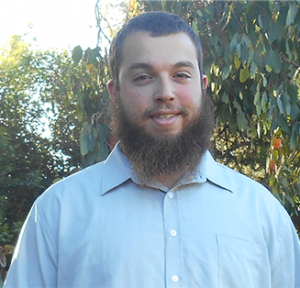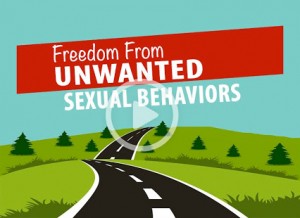Aboutislam editor interviews Mr Zeyad Ramadan, founder of Purify Your Gaze, an organization that helps Muslims who struggle with pornography and unwanted sexual behaviors.
Editor: First of all, tell us a bit about yourself. What is Purify Your Gaze? What inspired you to start Purify Your Gaze?
Zeyad Ramadan: My name is Zeyad Ramadan. I am first and foremost a husband, a father, and a stepfather who lives in California and married with 4 children, alhamdulillah. Professionally, I am a strategic intervention coach, and I have been working with Muslims since 2007. Purify Your Gaze is an organization that helps Muslims who struggle with pornography and unwanted sexual behaviors.
First of all, it is a judgment free place where they can get guidance to not only quit their addiction but also to understand the underlying roots of the problem, and to make a deeper change in their life. We also blog and spread awareness about the harms of pornography as well as talking about things like spirituality, intimacy, and healthy sexuality; some of the factors we see that contribute to the development of an addiction, and also factors that are part of the recovery and healing process.

Zeyad Ramadan, Founder of “Purify Your Gaze”
There are a number of things that inspired me personally to start Purify Your Gaze. Part of the reason I got started with my career was that I was fed up with Muslims struggling with depression and addiction. Unfortunately, anything that is mental-health related considered taboos in our community. I wanted to change this stigma associated with getting help.
Once I had a client I was working with. He was a married man, and this was my first, real exposure to the harms of pornography addiction. There was one particular incident that touched me. He experienced a relapse at his work place, and he felt so determined to get back up again that he made ghusl at his workplace and dried himself up with the paper towel, because this was the only thing he had. This touched me at the time and made me realize the reality of this problem.
This led me to see what was out there in the market that could help me learn about helping him. I saw a lot of solutions that were offered by psychotherapists or by Christians, but there was nothing available by Muslims. So I was inspired to start something.
Back in 2009, I started the website and compiled a blog that was very informal, without knowing whether there will be any reception to it or not. I started first coaching individuals and writing about it, and in spring 2010, I ran the first pilot program with 12 individuals. It was a twelve-week course just to see how this could work out.
Later, in 2010, I had an awareness campaign that involved several prominent Muslim organizations and Islamic personality speakers. Alhamdulillah, we reached 40000 individuals through that campaign. We came into a more prominent place because of that, and alhamdulillah since 2009, several thousands of members have been in this program coming from 66 different countries so far. It has been a tremendous blessing, Alhamdulillah.
E: What are the demographics of Muslims suffering from unwanted sexual behaviors? Are they only men or women as well?
Z: In the first large program I lunched in 2010, I had about 120 participants. What surprised me was that among the participants I saw a lot of women. First, I thought they were the spouses of those addicted and came to learn how they could help their spouse. But upon deeper inquiry, I found out they were actually in the program for themselves!
So, this addiction is not solely a male thing, although predominantly most of the members, about 80%, are males. Their level of education varies from high school dropout to PhDs. Among them are IT specialists, doctors, lawyers, people involved in da’wah, students, married, single, both men and women.
This isn’t really just a youth problem. Obviously, this is a big problem for teens as well, but people in our programs are from the age of 18 all the way up to mid 60’s. The reality is that, like any addiction, it is not a Muslim vs. non-Muslim problem, or a practicing Muslim vs. non-practicing Muslim problem. It is a human problem, and it affects people of all ages and from all background.
E: What do you think, why are so many Muslims involved in something explicitly forbidden by the teachings of our deen?
Z: One of the problems is that there is a large void in our community to talk about sex and healthy sexuality. There isn’t opportunity for young, developing teenagers to start learning about sexuality in a way that is safe. And due to their curiosity and the lack of proper place, they start going online. According to statistics, 90% of kids will come across pornography at the age of 11 years old.
There are also certain factors that may cause one to be addicted. Often people experience some sort of hardship, bullying, a loss in the family, parents’ divorce, the struggle at school, and they turn to pornography (and masturbation), because there is a pleasure mechanism involved. Even though they know it is haram, they are not able to stop it.
Another reason why Muslims turn to pornography (or other kinds of sex addictions) is because they are practicing Muslims, they are not able to get married, but they want to experience sex as others around them. They start believing that this is something temporary, it is a necessary evil, and they are going to stop it. Obviously, it is not the case. Overtime, they will become addicted.
Unfortunately, today porn is easily accessible, anonymous, and free, and these factors can make it more tempting for someone to fall into this trap. The reality is that our kids will most likely be exposed to it, and we need to be prepared how we will talk about it then. An addiction becomes a coping, something which helps dealing with the challenges of life, therefore education as well as life management and coping skills for our kids (besides memorizing Quran and learning fiqh) are really important. If these skills are missing, one is likely to become vulnerable to develop an addiction.
E: Often shuyookh give the advice of fasting, and lowering one’s gaze, because they think it’s an eman issue. Isn’t it an eman issue?

Unfortunately, today porn is easily accessible, anonymous, and free, and these factors can make it more tempting for someone to fall into this trap.
Z: What we have to keep in consideration is that a person who can give a fatwa is not a trained counselor. They look at things from a halal-haram perspective. Advices like fasting or getting married as a way to enjoy the desire and protect their chastity are important, but they don’t apply to one who has an addiction, because these general advices don’t deal with the roots of the issue.
The problem is not with sex or pornography. The problem is that it has become a vehicle for them to manage their life, to deal with their frustrations and depression, and it can be easily interchanged with anything else. Someone who is able to stop pornography might develop a food addiction or drug addiction, or even da’wah addiction. Understanding some of the deeper psychological, emotional, and spiritual roots of the problem is essential for advising an addict.
E: How does your programs help people quit?
Z: First, we help people recognize the nature of addictions and the patterns, and make them understand that the vehicle is leading to some spiritual, psychological, mental, even physical needs. When the person has clarity to see why they are choosing a behavior over and over again, they can find healthier vehicles that meet their needs and cope with the challenges of the life.
We help them get their life back on track in a way that is in accordance with their highest purpose of life.
We help them repair their major relationships. All addictions, at the root of it, are an inability to be emotionally present, to bound with others, and to be themselves. So, we help people connect and restore that relationship with themselves in a very personal level.
A lot of people’s relationship with Allah is a general, a distant one. We help people increase their faith by building a personal relationship with Allah.
A lot of times there’s a lot of damage as a result of an addiction, especially when one is lying and being secretive for many years. Relationships are broken, marriage is harmed. We help people pick up the pieces, but most importantly decide what their second chapter of their life will look like.
We also provide practical tools for the people to better themselves. We also provide accountability; someone that holds you accountable. We have a behavior track that they can hold themselves accountable and be on track with their progress. In addition, our stuff also leads weekly discussion groups where people can check in. The idea behind support groups is that instead of turning to an addiction for support or as a way of coping, you turn to your relationships that help you deal with life.
Purify Your Gaze is completely anonymous, and you can get the help you need in a private way.
E: JazakAllah kahyran Brother for your insight. It was really enlightening.
For more information about the programs of Purify Your Gaze, visit: http://purifyyourgaze.com/programs/
First published: March 2016